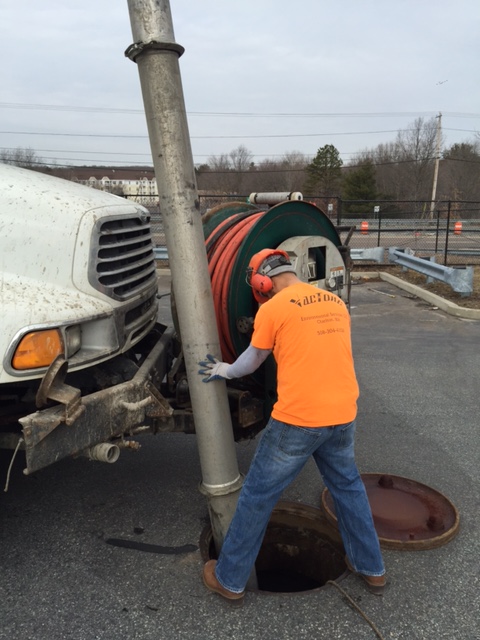
Did you know there are more parking lots than people? The ratio is about three to one. Water contamination from parking lots is a real menace, and often overlooked when people talk about environmentally-friendly practices.
The Problem with Parking Lot Water Runoff
The truth is, parking lot water runoff accounts for a large part of water pollution. A thousand pounds of heavy metals go into water runoff annually.
Let’s take a look at these metals, or chemicals. Many parking lots have a sealcoat applied to protect them from the elements. This sealcoat is a black liquid that covers paved surfaces. It contains high levels of polycyclic aromatic hydrocarbons (PAHs). Tires from vehicles cause abrasions when they drive over the sealant that breaks this coating down into fine particulates. These particles then wash into streams with rain and runoff.
PAHs are toxic to fish and other aquatic life. Some are also carcinogens, believed to cause cancer in humans. The good news is there is a low risk of pollution from PAHs in drinking water because PAHs tend to attach to sediments instead of dissolving in water. But this is why stormceptors, which separate sludge from water are so important. Rain mixes with oil, grease and coolants from cars and trucks and causes pollution. Other culprits of pollution include fertilizers for landscaping, soil from construction sites, bacteria from pet waste and anything that has fallen on the pavement.
Another problem is the flooding and erosion caused by parking lots. When you’ve paved over a large stretch of land, there is no soil for the rain to soak into. So the rain flows elsewhere and creates serious flooding conditions. What can business owners do about this? If you were getting ready to build your company location, you could try building a shared lot with another company to help save some of the land. In many cases, it’s too late for this, because the parking lot is already there.
How to Reduce the Damage of Parking Lot Contamination
To reduce damage, it’s important to maintain septic systems by conducting regular inspections and pumping. If the septic system fails, it could cost so much money to fix and could also pollute nearby lakes and streams.
At VacTone, we do regular storm water maintenance. We’ll take a look at what type of sediment tank you have, and we’ll maintain it. We inspect and maintain commercial and industrial storm water storage tanks. We’re committed to keeping storm water clean, eliminating costly backups and causes of pollution.
We also maintain catch basins, which are basically devices that collect pollution. They catch excess debris from runoff water before it can reach sewer pipes.
Eco-friendly businesses depend on professionals like us at VacTone to keep the environment, and your property, pollution-free. Talk with us today and let us go to work for you.
VacTone Environmental Services, serving Massachusetts and southern New Hampshire. Contact us today!
